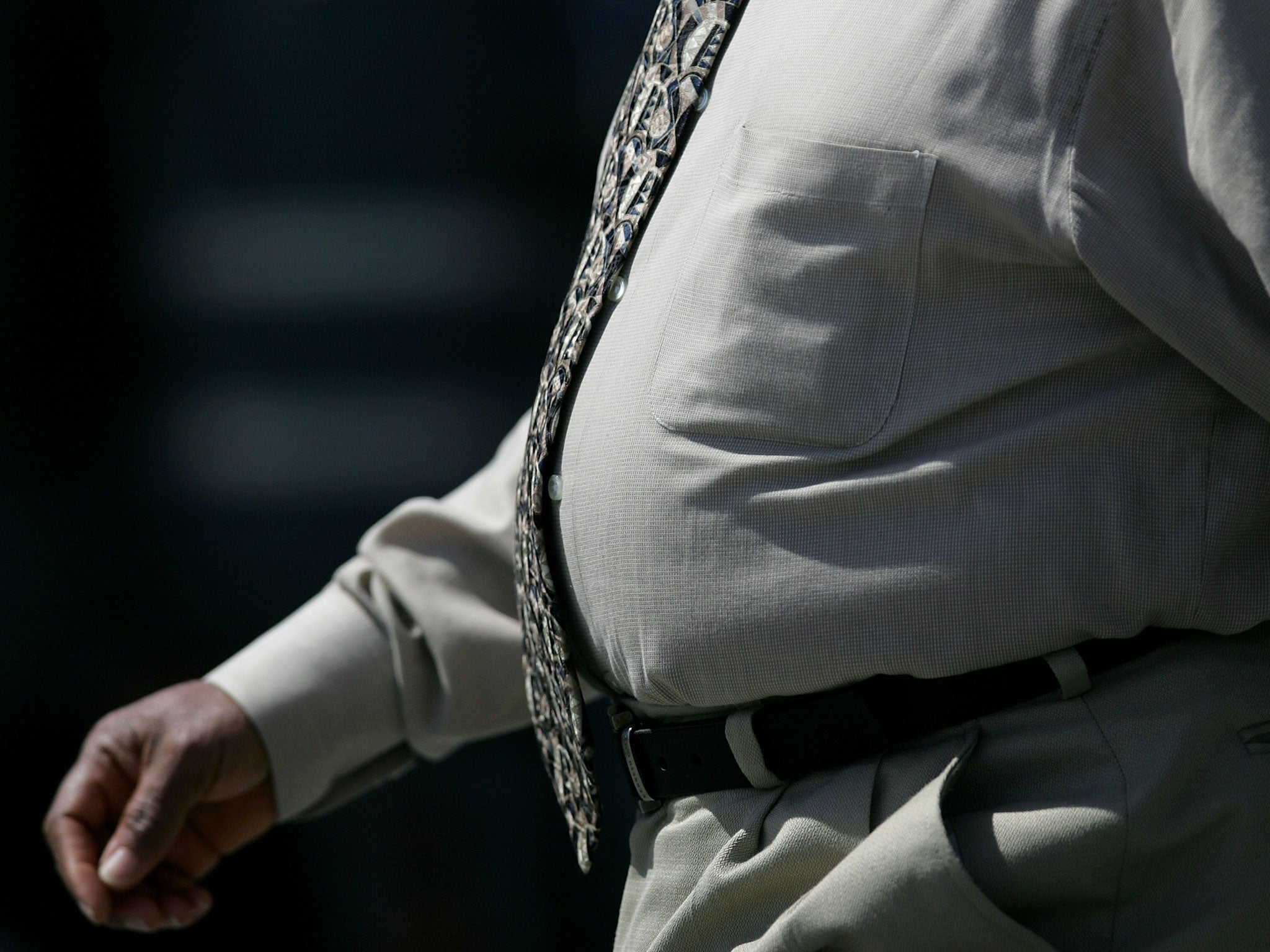Obese men who lose weight 'less likely to have overweight children'
Study finds sperm of men who had a gastric-bypass undergoes changes that may predispose their children to being slim

Overweight men should think about going on a diet before starting a family if they want to lower the risk of their children being fat, a study suggests.
Scientists have found that the DNA in the sperm of obese men who lost weight through gastric-bypass surgery undergoes “epigenetic” changes that may predispose their children to being slim rather than overweight.
The preliminary findings may be the first strong direct evidence that men as well as women should prepare themselves for conceiving a child through changes to their lifestyle.
“Our research could lead to changing behaviour, particularly pre-conception behaviour of the father,” said Romain Barres of the University of Copenhagen, who led the study published in the journal Cell Metabolism.
“It’s common knowledge that when a woman is pregnant she should take care of herself – not to drink alcohol, stay away from pollutants and so on. But if the implication of our study holds true, then recommendations should be directed towards men too,” Dr Barres said.
The study analysed the DNA of six obese men who underwent weight-loss surgery. The researchers found no genetic changes to the genes, but did find an average of 5,000 non-genetic “structural” alterations to the various molecules surrounding their sperm DNA.
Dr Barres suggested that these so-called “epigenetic” changes could be passed on to offspring and may have been caused by the dramatic weight loss seen in these men – although he emphasised that this was still only a hypothesis.
“It’s only an association, but maybe the weight loss associated with the surgery caused the changes to the sperm cell. If so, it means that what men transmit to their children may change over time,” Dr Barres said.
“The message to men is that they need to take care of themselves before they have children, which is going to be very novel for them,” he said.
Experiments on laboratory animals have already suggested that it is possible to make epigenetic changes to sperm and eggs through environmental changes, and that these changes can be passed on to offspring.
Epidemiological studies of humans have also shown that when one generation experiences a famine, this can increase the risk of metabolic diseases in their grandchildren – an indirect indication of inherited epigenetic changes.
Allan Pacey, professor of andrology at the University of Sheffield, said: “This is an interesting study which provides further evidence to support the theory that some characteristics can be passed by sperm from a father to his children, without altering the basic structure of the genetic code….The fact that changes can be seen in men before and after significant weight loss also adds some validity to the findings.”
Join our commenting forum
Join thought-provoking conversations, follow other Independent readers and see their replies
Comments